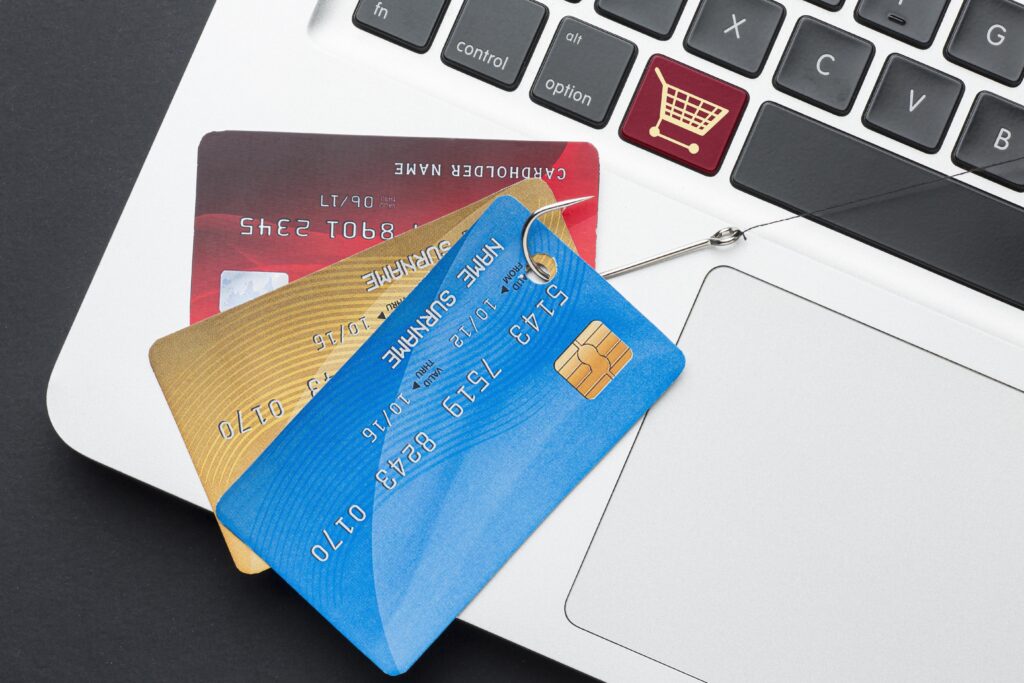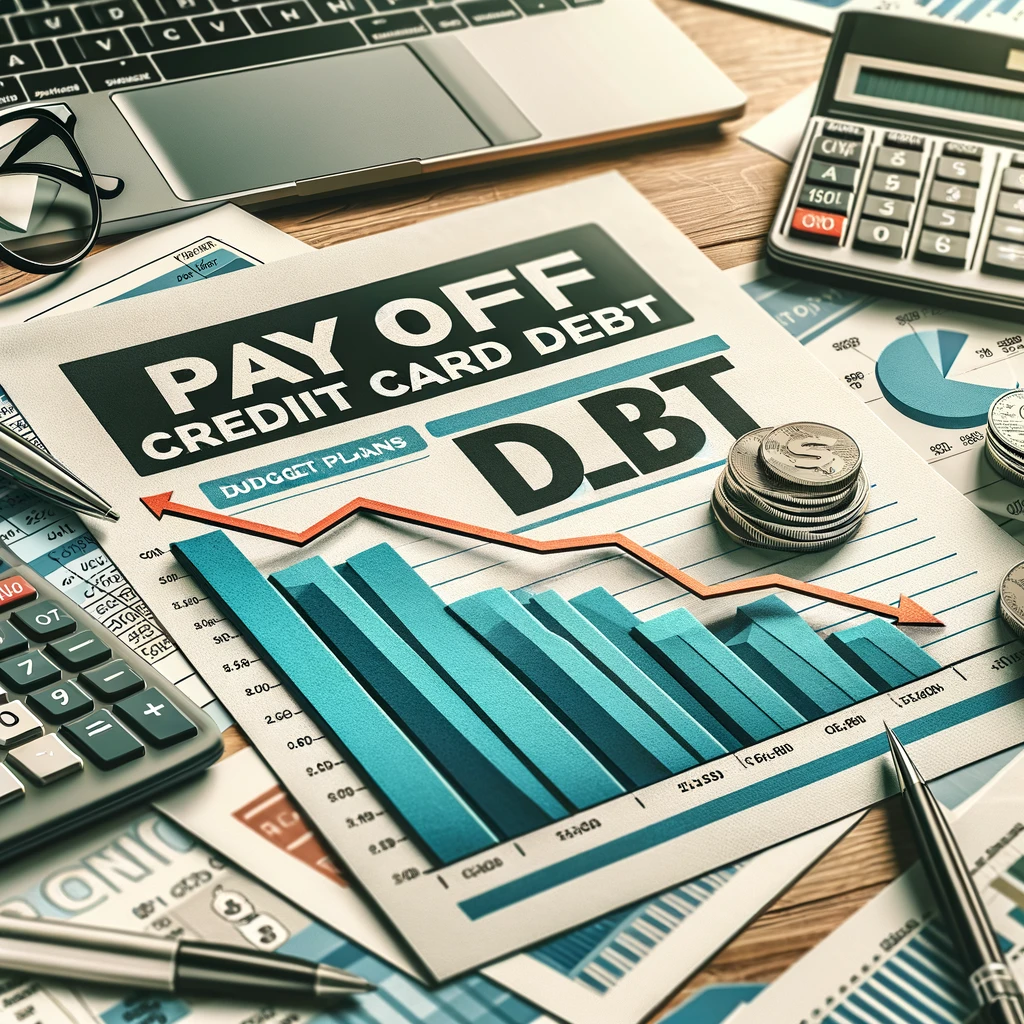Paying/Pay off credit card debt can seem overwhelming, but with a clear strategy and some determination, it is entirely possible to regain control of your finances. This blog will explore several effective methods to tackle credit card debt and answer some common questions many people have about the debt repayment process.

Understanding Your Credit Card Debt
Before you can embark on a journey to pay off credit card debt, it’s crucial to have a complete understanding of what you owe. This means looking beyond the balance and understanding the interest rates, the terms of your credit agreement, and any fees that might be applied. Knowing this will help you prioritize which debts to pay off first and determine the most effective repayment strategy.
Effective Strategies to Eliminate Credit Card Debt
Budgeting to Free Up Cash
Creating a budget is the first step in any debt repayment plan. By understanding where your money goes each month, you can identify areas where you can cut back. Redirecting these funds towards your debt can significantly speed up the repayment process.
The Avalanche Method
This debt payoff strategy prioritizes high-interest debts. You focus on aggressively paying down the card with the highest Annual Percentage Rate (APR) while making minimum payments on your other debts. Once the card with the highest APR is paid off entirely, you move on to tackling the next highest interest rate debt. This method saves you money in the long run by minimizing the total interest you pay.
The Snowball Method
If you need a motivational boost, consider the snowball method. This strategy focuses on tackling your debts with the lowest balances first, rather than considering interest rates initially. The quick wins of eliminating smaller debts can give you a surge of accomplishment, fueling your momentum to tackle larger ones later.
Debt Consolidation
Consolidating multiple credit card debts into a single loan with a lower interest rate can make payments more manageable and reduce the amount paid in interest. This method can be particularly effective if you have good credit and can secure a favorable interest rate.
Balance Transfers
Transferring high-interest credit card balances to a card with a lower interest rate or a 0% introductory offer can provide temporary relief from interest charges. This can give you a window in which to pay down the principal balance more quickly. However, it’s important to be aware of any transfer fees and to have a plan for paying off the balance before the promotional period ends.

Tools and Resources for Debt Repayment
Debt Repayment Calculators
Use online tools and calculators to plan your repayment strategy effectively. These tools can help you visualize how different repayment strategies will affect your finances over time.
Financial Planning Apps
Consider using budgeting apps that help track your spending and manage your debt repayment. These apps can provide insights into your spending habits and help you stay on track with your financial goals.
Professional Financial Advice
If you find yourself overwhelmed, consulting with a financial advisor can provide personalized guidance tailored to your specific financial situation.
How can i pay off credit card debt fast
1. Evaluate Your Debt
To get a clear picture of your credit card situation, the first step is to gather all your credit card information and create a master list. Include the balance, interest rate, and minimum payment for each card. Understanding the total amount you owe and the costs associated with it is the first step towards formulating a plan to pay off credit card debt fast .
2. Budget Wisely
Creating a budget that prioritizes your debt repayment is critical. Assess your monthly income and expenses to find areas where you can cut back. Allocate the money saved from these cutbacks directly to your debt repayment. The more you can put towards your debt, the faster you will pay it off.
3. Choose a Repayment Strategy to pay off credit card debt
The Snowball Method: This method involves paying off your debts from the smallest balance to the largest. It can be particularly motivating because you see debts disappearing quickly, which can encourage you to keep going.
The Avalanche Method: With this approach, you pay off credit card debts from the highest interest rate to the lowest. This method will save you the most money in interest payments over time, which can speed up the overall process of becoming debt-free.

4. Consider a Balance Transfer
If you have good credit, you might qualify for a credit card that offers a 0% introductory APR on balance transfers. Transferring your existing credit card debt to such a card can give you a break from interest charges and allow you to pay down the principal faster. Be mindful of any transfer fees and how long the promotional rate lasts.
5. Pay More Than the Minimum
Always aim to pay more than the minimum payment on your credit cards. Minimum payments are usually set at levels that primarily cover interest charges, doing little to reduce the principal balance. By paying more than the minimum, you reduce the principal balance much more quickly.
6. Utilize Windfalls Wisely
Any unexpected windfalls such as tax refunds, bonuses, or gifts should be directed toward your credit card debt. While it might be tempting to use this money for other purposes, applying it to your debt can significantly accelerate your debt repayment timeline.
7. Earn Extra Income
Consider ways to increase your income through side hustles, freelance work, or overtime hours. The additional income can be dedicated entirely to your debt, which can dramatically speed up the repayment process.
8. Cut Unnecessary Expenses
Analyze your monthly spending to pinpoint opportunities to streamline your budget. This might include dining out less, canceling unused subscriptions, or switching to more cost-effective utility providers. Redirecting these funds to your debt can make a significant difference.
9. Stay Motivated
Keep track of your progress and celebrate when you reach milestones, such as paying off a card completely or reaching a new low in your total debt. Staying motivated is key to maintaining your momentum.
10. Seek Professional Advice
If you find it challenging to manage your debt, consider seeking advice from a credit counselor. Many non-profit organizations offer free or low-cost services that can help you understand your options and set up a debt management plan.

FAQs About Pay Off Credit Card Debt
Q: What should I do if finding it difficult to manage to make minimum payments?
A: If you find yourself unable to make minimum payments/pay Off credit card debt, it’s important to reach out to your creditors immediately. Many credit card companies have hardship programs that can provide temporary relief in the form of lower interest rates or reduced payments.
Q: Should you prioritize paying down debt or building your savings?
A: Ideally, you should try to do both, but if you have high-interest credit card debt, it’s usually more cost-effective to prioritize paying off this debt before focusing on saving. Once your debt is under control, you can shift more funds into savings.
Q: How can I avoid getting into debt again?
A: Staying out of credit card debt requires discipline and a solid understanding of your financial situation. Stick to a budget, save for emergencies, and avoid using credit cards for purchases you can’t afford to pay off in full each month.
Q: Can debt relief services help?
A: Debt relief services can be helpful, but they come with risks and costs. It’s important to thoroughly research and consider all options, such as debt management plans or settlement, and to understand the potential impacts on your credit score.
Q: What impact does pay off credit card debt have on my credit score?
A: Pay off credit card debt generally has a positive impact on your credit score, especially if you’re lowering your overall credit utilization ratio. However, closing old accounts once they’re paid off can negatively affect your credit score by shortening your credit history.
Conclusion
Paying/Pay off credit card debt is a powerful step toward financial stability and freedom. By understanding your debts, choosing the right repayment strategy, making lifestyle changes, and staying informed, you can effectively manage and eliminate your credit card debt. Remember, the journey to being debt-free starts with a single step—and continues with persistence and discipline.
You might be interested in reading related https://moneyymagnett.com/credit-score-to-buy-a-house/


Pingback: What are the Best Investing Apps for 2024?